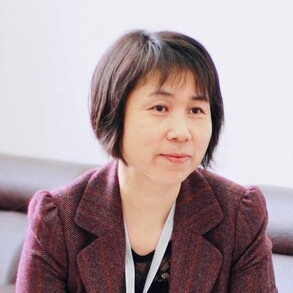Abstract
Talk 1: A Universal Infrastructure for Learning Languages through Cultural Activities: The ENACT Web App
ENACT is a free web app https://enacteuropa.com/ developed at Newcastle University UK, co-funded by the European Union. The app enables people to learn aspects of foreign languages while performing a meaningful real-world task which enables them to experience the culture of the target language. In this presentation, we will introduce the principles underlying the app design, and briefly demonstrate the key features of the ENACT app: the interactive player, the author, and the community. We will then present our research on vocabulary development outcomes and processes, and locate the findings in a universal infrastructure for language development (SCIERRA) and make recommendations for designers of digital environments and language learners. We will end with an update on the latest materials we have produced for learning Chinese https://enacteuropa.com/?q=node/437, on the impact of the project and our in-press Bloomsbury book.
Speaker
Prof. Paul Seedhouse
Prof. Müge Satar
About the Speaker
Paul Seedhouse is Professor of Educational and Applied Linguistics at Newcastle University. He researches what is universal about human spoken interaction, arguing that all human populations use the same basic interaction engine, with diverse overlaid languages. The ENACT web app aims to provide a universal infrastructure to help people around the world appreciate their commonality and diversity. He has published 11 books and over 70 articles and book chapters in the areas of spoken interaction, applied linguistics and digital technology.
Müge Satar is Reader in Applied Linguistics at Newcastle University. She is interested in communicative and pedagogical aspects of multimodal interaction for online language learning and teaching, focusing on social presence, meaning-making, instruction-giving, task design, and translanguaging. She is the co-editor of the Journal of Virtual Exchange and publishes in leading journals in the field such as Language Learning and Technology, ReCALL, and System.
Abstract
Talk 2: Investment in Ethnocultural Maintenance: Multimodal Cultural Artifact Creation as a pedagogical tool
Ethnocultural maintenance is important to both the cultural diversity of society and to the well-being of marginalized ethnics. In this presentation, we will present a research study on a group of university marginalized ethnic students’ experience of creating multimodal cultural artifacts, and how this experience shaped their investment in ethnocultural maintenance. Following that, we will also present a study on the impact of multimodal cultural artifact creation on secondary ethnic minority students’ linguistic and cultural collaboration. We argue for multimodal cultural artifact composing as a culturally sustaining pedagogy to enhance ethnocultural maintenance.
Speaker
Prof. Chun Lai
Prof. Lianjiang Jiang
Date
2024.11.14
Time
17:00-18:40
Location
ZOOM
Chair
Prof. Lianjiang Jiang
- ‘Curses in TESOL’: Postcolonial Desires for Colonial English
- “Enhancing Data-Driven Learning in Disciplinary L2 English Contexts: Introducing CorpusMate”
- “Neither Bilingual nor Education”: critiques of bilingual education in state school education and responses to them
- A Two-Tiered Investigation Into the Dual Goal in EMI Education: Assessment and Instructional Practices
- Acculturation and digital trans-literacies in identity construction: An interdisciplinary perspective (Nov 6th, 2025)
- Appropriation of Resources by Bilingual Students for Self-regulated Learning of Science
- Auckland U – HKU Joint Webinar (28 November, 2024)
- Automated Content Feedback and Young English Learners’ Behaviours, Performances and Response
- Book Launch Seminar: Language Across the Curriculum & CLIL in English as an Additional Language (EAL) Contexts
- Critically Engaged Literacy Workshop as Decolonial and Anti-Racist Pedagogy (April 16th, 2025)
- Crosslinguistic influence in foreign and second language learners
- Developing Language Educators’ Understanding of Assessment Reform Discourse and Practices: School-University Collaborative Action Research as Praxis
- Digital literacy pedagogy:
Key issues in the age of Gen-AI
- Digital Multimodal Composing for Specific Purposes: The Case of Sustainability Discourse
- EMI Symposium 2023: Fostering Collaboration
- Exploring Self-Regulated Use of Artificial Intelligence Tools in Language Learning
- Generative AI: Implications and Applications for Education
- Global Englishes-informed Teacher Education: Present Cases and Future Directions
- HKU-NCL Joint Webinar (Nov 27th, 2025)
- HKU-Newcastle U Joint Webinar: Critical Perspectives on Language Policy and Practice (May 2nd, 2025)
- HKU-NIE Joint Webinar: Designing Learning and Assessment with Multimodality in CLIL Classrooms
- Hong Kong SAR Government’s ‘Biliteracy and Trilingualism’ Policy: Sizing Up and Meeting the Challenge
- Hong Kong Students’ Self-regulated English Writing for Academic Studies
- HUMANISING TECHNOLOGY in Language Learning & Teaching
- Interactional Reflexivity in the Age of AI: Rethinking L2 Writing Teachers’ Assessment Literacy Development (Oct 9th, 2025)
- Language ideologies in text-based art of Xu Bing: Implications for language policy and planning
- Language Learning in 3D Virtual Worlds
- Learning about and using academic vocabulary: Critical issues for pedagogy (Feb 18, 2025)
- Motivational and Empowering Feedback in the Writing Classroom
- Multilingualism and its Ramifications
- Multilingualism and Mobility: The Semiotic Production of Centres and Peripheries in Airport Spaces
- Multilingualism and the Brain
- Narrative Skills in Mandarin- English Dual Language Immersion Learners
- Narratives of Cross-Cultural Understanding among South Asian Diasporic Students in Hong Kong
- NCL-HKU Joint Webinar (June 5th, 2025)
- Oklahoma U-HKU Joint Webinar (05 December, 2024)
- Optimising Classroom Learning: Speaking in and about Mathematics Classrooms
- People who come from state education are different”: How language use maintains social exclusion in Medical Education
- Policy vs Practice: Homework in Hong Kong EFL Classrooms
- Review of recent research on AI-powered technology in second language teaching, learning and testing (Feb 10, 2025)
- Revival and Threat: Language ideologies, policy, and nationalism in Kazakhstan and Mongolia
- Secondary school students’ source use in inquiry project-based learning (PjBL): Working towards avoiding plagiarism and engaging with sources
- Sociocultural awareness of international ELT policies: The case of a US-funded program in Morocco
- Studies of Public Policy Process and Implications for Research on Education Policy
- The Challenges of Teaching Non-Chinese Speaking Children to Learn Chinese at Kindergarten Level
- The Contributions of Growth Rates in Phonological and Spatial Abilities to Chinese Reading and Mathematical Competencies: A Longitudinal Study of Hong Kong Kindergarteners
- The Digital Literacies Forum 2023
- The Effects of the Medium of Instruction in Physics on Achievement and Motivation to Learn
- The Historical and Linguistic Background of South and Southeast Asian Multi-ethnic Communities in Hong Kong
- The Influence of Extramural Access to Host Culture Social Media on Ethnic Minority Students’ Motivation for Language Learning
- Top desk rejection reasons and how to avoid it
- Translanguaging in Everyday Textual Performances: Implications for Literacy and Pedagogy
- Understanding Language Learning Motivation in Hong Kong
- University of Melbourne – University of Hong Kong Joint Symposium (19 November, 2024)
- Using Reading to Learn Pedagogy to Support Non-Chinese Speaking Students Learning Chinese in Hong Kong
- Videos in language classrooms: A social semiotic perspective
- What can we learn from the Hong Kong Archive of Language Learning Project?
- New technologies in literacy research:
“Measuring” embodiment through
galvanic skin response
- Publishing in top-tier applied
linguistic journals:
Perspectives of an editor�reviewer-author





